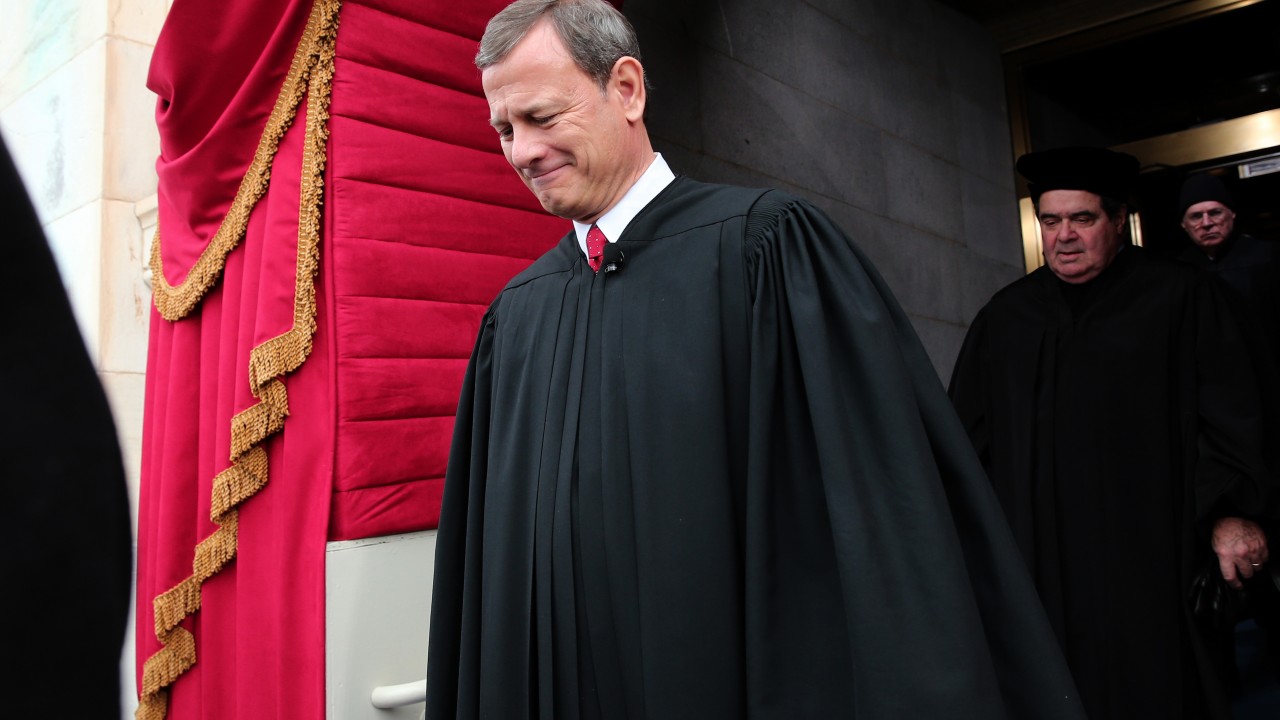
Supreme Court Chief Justice John Roberts arrives during the presidential inauguration on the West Front of the U.S. Capitol January 21, 2013 in Washington, DC. (Photo by Win McNamee/Getty Images)
In today’s Washington Post, Dana Milbank writes about Monday’s Supreme Court arguments in Friedrichs v. California Teachers Association, a case that could “upend a 40-year precedent guiding labor relations in favor of a new approach that will deplete public-sector unions’ finances.”
Milbank observes:
The only question is how big a loss Friedrichs v. California Teachers Association will be for the unions. It’s virtually certain to be another step toward American oligarchy. The court’s conservative majority, setting aside a professed respect for precedent and states’ authority, is putting a thumb on the scale of justice in favor of the wealthy donors who have purchased the GOP and much of the government.
Justice Stephen Breyer, one of the Democratic appointees, argued that there were good arguments on both sides of the case, but no compelling reason to “overrule a compromise that was worked out over 40 years and has lasted reasonably well.” Said Breyer: “I guess people could overrule our decisions just as easily. And you start overruling things, what happens to the country thinking of us as a kind of stability in a world that is tough because it changes a lot?”
The answer, of course, is Americans have already come to see the court as another political branch of government. Lawyer Michael Carvin, leading the anti-union side Monday, gave further justification for that impression. In front of the justices, he dismissed the notion “that anything could happen adversely” to unions as a result of the case. But then he went out to the Supreme Court plaza and, in front of a cheering crowd, told the truth: ‘It may limit their revenue somewhat, but of course they can compensate for that by being less involved in things like politics.’
And that’s exactly the goal.
Read more about the case and yesterday’s proceedings at The Washington Post »
More on this Story
- Dave Johnson, “Supreme Court Appears Ready to Bankrupt Public-Employee Unions,” Campaign for America’s Future
- Laura Clawson, “The Supreme Court Looks to be Winding Up for Another Blow Against Unions,” Daily Kos
- Richard Kahlenberg, “Strong Unions, Strong Democracy,” New York Times Editorial



